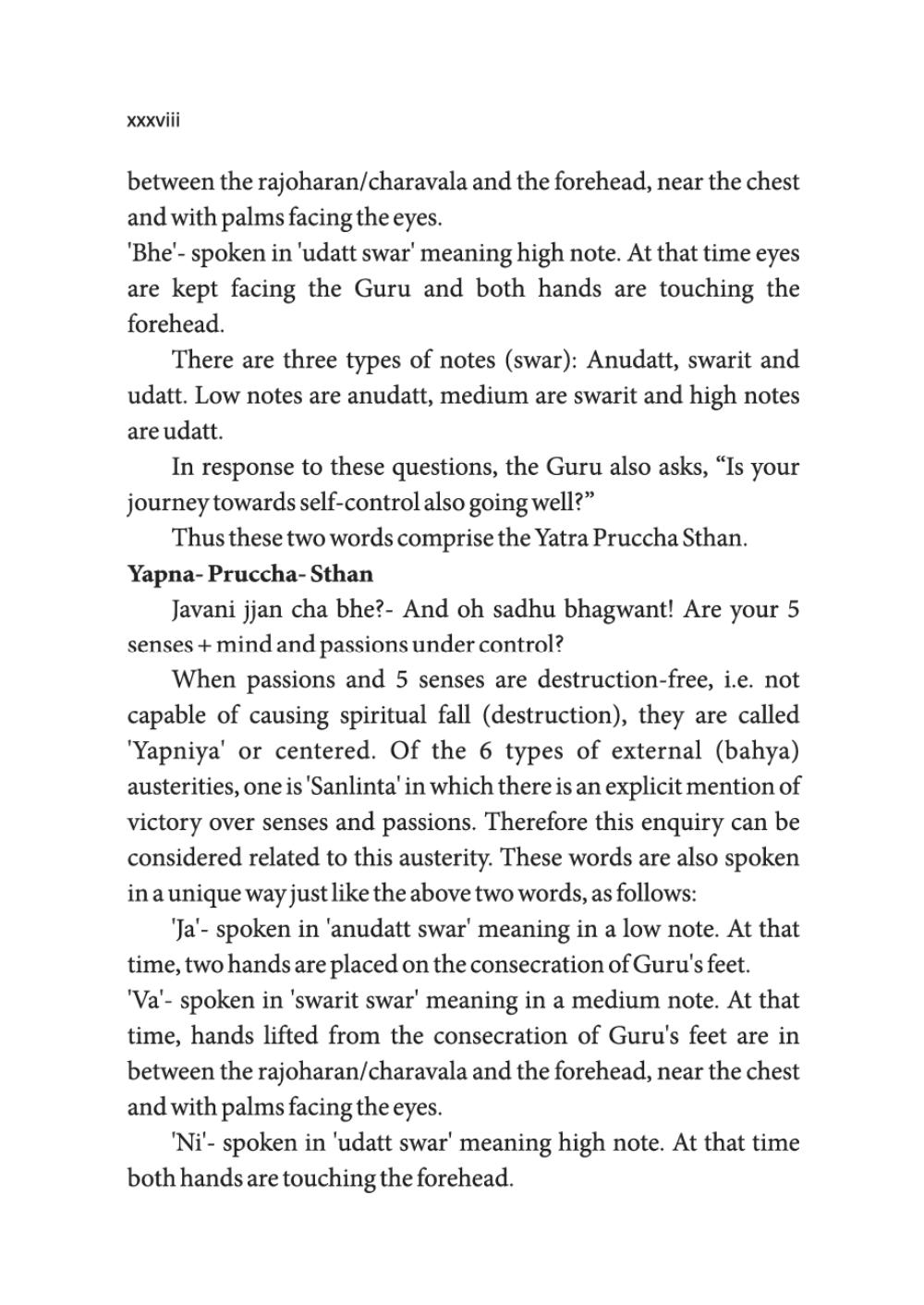________________
xxxviii
between the rajoharan/charavala and the forehead, near the chest and with palms facing the eyes. 'Bhe'- spoken in 'udatt swar' meaning high note. At that time eyes are kept facing the Guru and both hands are touching the forehead.
There are three types of notes (swar): Anudatt, swarit and udatt. Low notes are anudatt, medium are swarit and high notes are udatt.
In response to these questions, the Guru also asks, “Is your journey towards self-control also going well?”
Thus these two words comprise the Yatra Pruccha Sthan. Yapna-Pruccha-Sthan
Javani jjan cha bhe?- And oh sadhu bhagwant! Are your 5 senses + mind and passions under control?
When passions and 5 senses are destruction-free, i.e. not capable of causing spiritual fall (destruction), they are called 'Yapniya' or centered. Of the 6 types of external (bahya) austerities, one is 'Sanlinta' in which there is an explicit mention of victory over senses and passions. Therefore this enquiry can be considered related to this austerity. These words are also spoken in a unique way just like the above two words, as follows:
'Ja'- spoken in 'anudatt swar' meaning in a low note. At that time, two hands are placed on the consecration of Guru's feet. 'Va'- spoken in 'swarit swar' meaning in a medium note. At that time, hands lifted from the consecration of Guru's feet are in between the rajoharan/charavala and the forehead, near the chest and with palms facing the eyes.
'Ni'- spoken in 'udatt swar' meaning high note. At that time both hands are touching the forehead.




